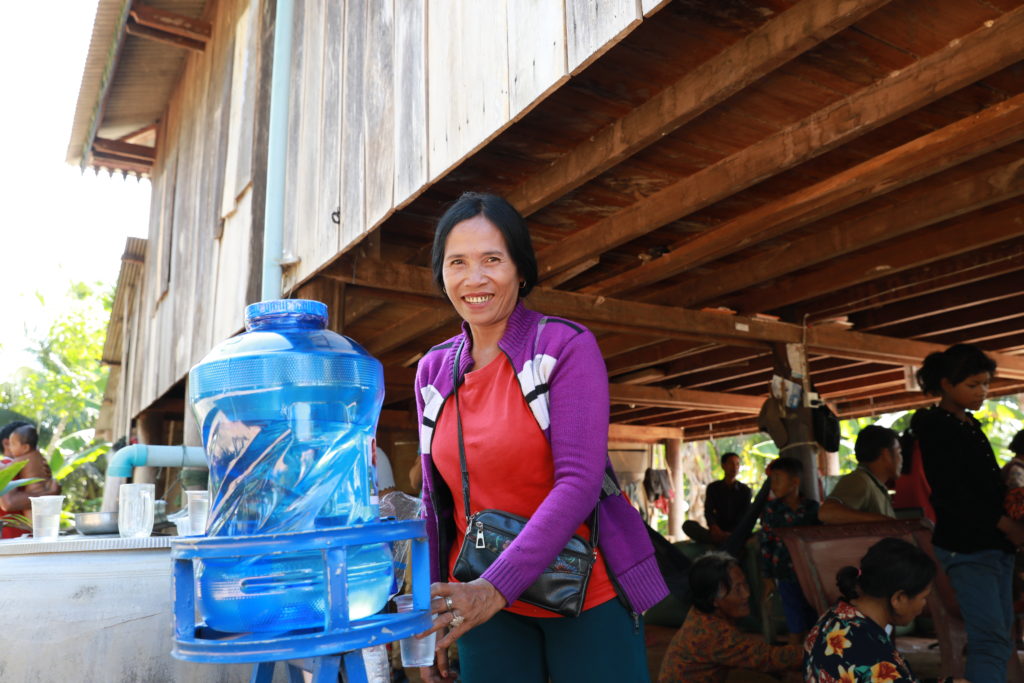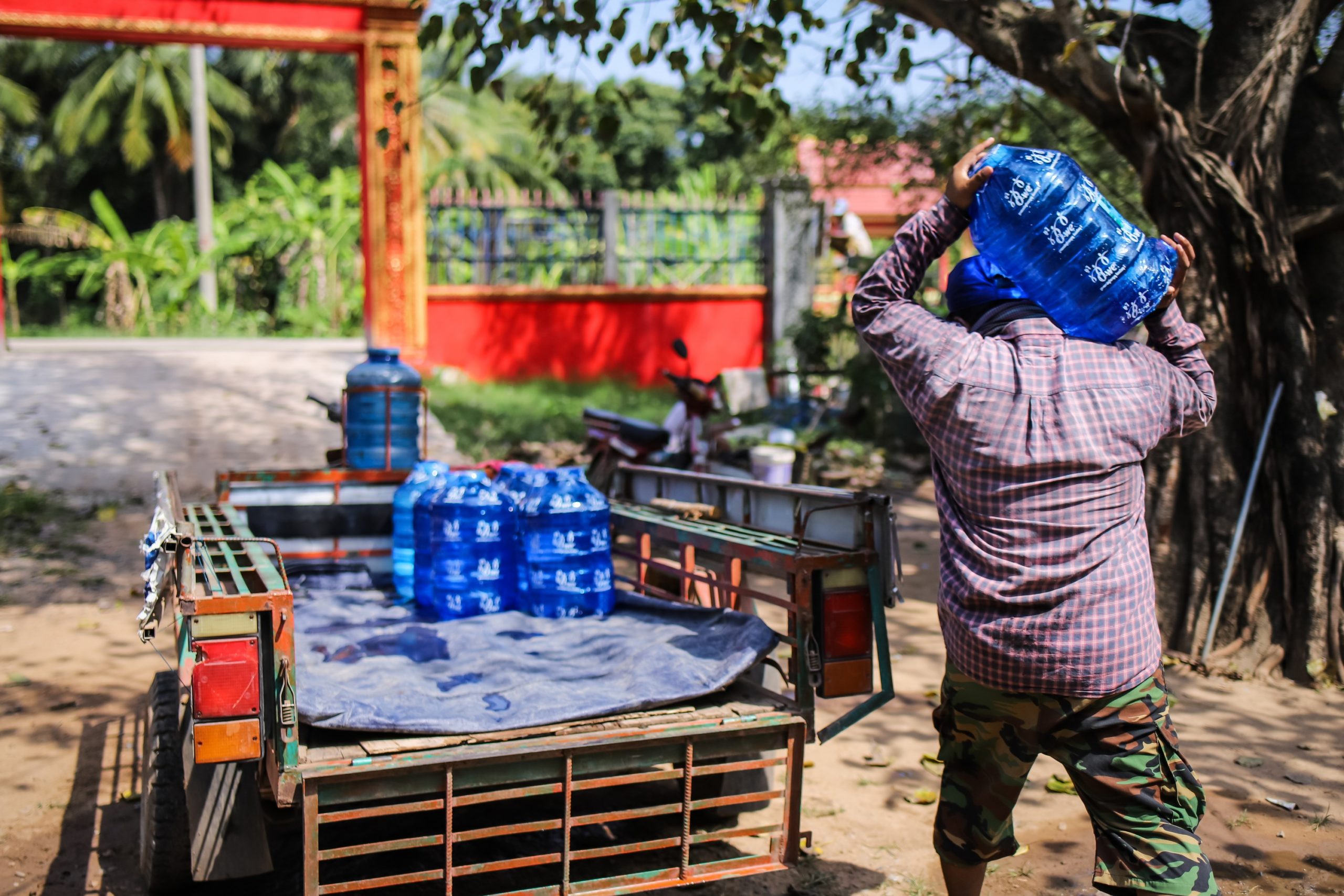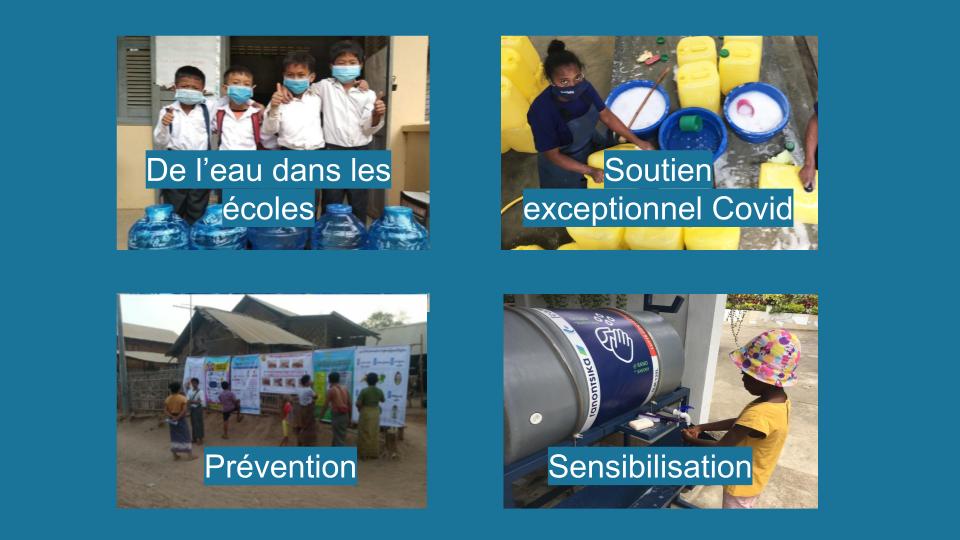“If you want to make progress on all the major global challenges, start with water”: this article by the World Economic Forum says it all. Unsafe water is a major contributor to poor health and persistent poverty in rural communities, where waterborne diseases claim 2 million lives annually and account for countless days of missed work and school. Forgone wages and unplanned health expenses due to drinking unsafe water place a heavy burden on economically vulnerable communities.
To address this vicious circle, 1001fontaines has pioneered and scaled a model called water kiosk, enabling the decentralized production of safe drinking water.
Rural areas, where the 1001fontaines’ solution has been implemented in the past 15 years, now experience virtuous economic development, improved public health and long-term environmental sustainability:

HEALTH: Providing safe drinking water and fostering behaviour change
In the underserved areas where 1001fontaines operates, communities have no other choice but to rely on traditional water sources (wells, rivers, ponds) to fulfill their needs. Lacking both safely managed water services and awareness of the importance of clean water, these communities often perpetuate unsafe practices to collect, store and treat the water they use for drinking purposes.
Improving access to safe water is both a development goal in its own right and a means to achieve other development goals, particularly related to health. Consistent access to safe water significantly decreases diarrheal diseases, to which children are particularly vulnerable. A 2012 study conducted in Cambodia showed a 30-60% reduction (depending on the initial water source) in diarrheal diseases in children under five in 1001fontaines catchment areas.
Children who drink safe water are also able more consistently to attend and get the most out of school. A second study conducted in Cambodia demonstrated a decrease by 55-75% in school absenteeism in 1001fontaines catchment areas.
These results were achieved thanks to a combination of an appropriate infrastructure to purify the locally available water and ensure its quality and to a standardized process guaranteeing this quality up to the point of consumption.
Awareness of water quality among the target communities fosters long-lasting behavior change, which is another key factor in increasing the health impact. Ma Htay, a Myanmar consumer, completely changed her approach to water: “When 1001fontaines was not present in our village, I did not know that water could lead to diseases, and that my children were getting sick because of this. With my husband, we now understand the importance of drinking safe water, and we want our children to have a better, healthier life than ours. That is why we decided to start buying the 1001fontaines water.”

ECONOMY: Spurring inclusive local development
By establishing micro-enterprises directly in rural communities, 1001fontaines creates sustainable jobs at the grassroots level. Each enterprise creates three reliable, well paid jobs and the in-house training entrepreneurs receive covers everything from technical skills in water purification to marketing, finance, entrepreneurship and team management. The water kiosks receive on-going technical and business support from regional and national teams via a franchising model. As a result, these micro-enterprises are highly sustainable, with a survival rate of 82% since 2005, when our first water kiosk was deployed.
Beyond creating jobs in rural communities, we also provide an essential service at an affordable price – a key contributor to our customers being able to escape poverty. The cost of 1001fontaines water actually replaces other water-related costs (e.g. charcoal to boil surface water) and health expenses due to waterborne diseases and, as a result, enable consumers to have lower, more predictable expenses related to water.
Finally, our work also increases the economic inclusion of women and girls, who are often burdened with the daily task of fetching and boiling water. By ensuring the home delivery of safe drinking water, 1001fontaines frees their time for productive work and educational opportunities. We actively encourage female entrepreneurship and are proud that a third of all jobs created by 1001fontaines are held by women.

ENVIRONMENT: Ensuring long-term resilience
Sustainable rural development cannot happen without paying attention to environmental considerations, which ensure responsible use of resources and the capacity to provide service continuity over time. We designed and continuously adjust 1001fontaines approach with these considerations in mind.
The United Nations Framework Convention for Climate Change (UNFCCC) has certified 1001fontaines to issue carbon credits for the reduction in emissions of our approach, whereby, our customers simply buy safe water, instead of boiling on cookstoves. The decentralization of production and distribution and the use of solar power also limits emissions related to our activity. In Cambodia alone, we avoid approximately 15,000 tons of CO2 each year.
By 2025, it is estimated that half of the world’s population will be living in areas, where there will be growing pressure on water resources. Given this and the adverse consequences of climate change, which we can already observe, 1001fontaines has also put a high priority on resilience of water supply to climate change. The simple and flexible infrastructure of the water kiosk has proven its adaptability to conditions in different countries and, thus, its capacity to guarantee the continuity of service despite extreme events, such as drought or floods. However, with the increasing challenges caused by climate change, improving resilience will remain a key focus of our innovations for the coming years.
With an operationally and economically sustainable model that requires no more than $20 to provide one person with lifelong access to safe water, the water kiosk and its multi-dimensional impact have great potential to scale.
Let us join forces to reach more communities and replicate the virtuous circle of water.

